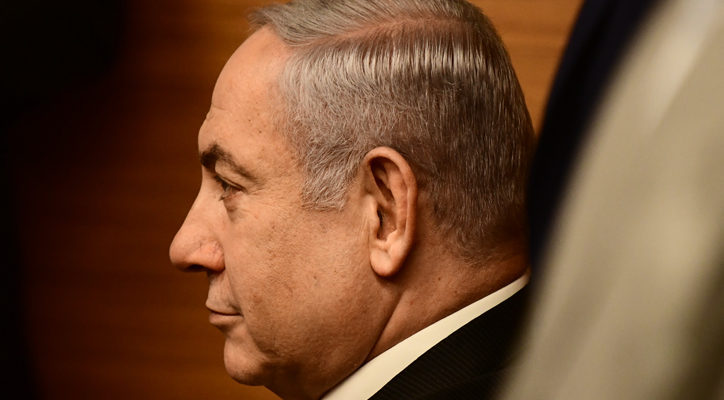The trial date for the corruption cases involving the prime minister was announced on Tuesday.
By World Israel News Staff
The opening date in the prime minister’s trial has been set for March 17 at 3:00 p.m., the Israeli court system announced on Tuesday. It will be two weeks after the March 2 Knesset elections.
Prime Minister Benjamin Netanyahu must attend the opening day at court but he can request to be absent during the proceedings that follow, Ynet reports.
Netanyahu will appear together with co-indictees Shaul Elovitch and his wife Iris Elovich (Case 4000) and Arnon Moses (Case 2000). Elovitch is a business tycoon and Moses is the owner of newspaper Yediot Ahronot.
In the initial meeting, Netanyahu will be read the indictment by the judge who will confirm that the defendant understands the contents. Netanyahu will be asked if he accepts or denies the charges.
Ynet reports that at this stage the list of witnesses, 333 in the Netanyahu cases, including dozens of police officers, will be presented. The newspaper says that the number will likely shrink.
Last week, the composition of a three-judge panel to preside over the trial was announced.
The three judges who will sit on the panel are Rivkah Friedman-Feldman, Moshe Bar-Am and Oded Shaham.
At the end of last month, Netanyahu pulled a request for immunity when he saw it would get bogged down in the Knesset committee.
Netanyahu was indicted in November, 2019 in a series of corruption cases. Attorney General Avichai Mandelblit charged Netanyahu with fraud, breach of trust and accepting bribes in three different matters.
It was the first time a sitting Israeli prime minister has been charged with a crime.
Allegations against Netanyahu include claims he accepted hundreds of thousands of dollars of champagne and cigars from billionaire friends (Case 1000), offered to trade favors with a newspaper publisher (Case 2000) and used his influence to help a wealthy telecom magnate in exchange for favorable coverage on a popular news site (Case 4000).
The prime minister denies the charges and has called them a “witch hunt” and an effort to push him from office through the courts rather than through the ballot box.




